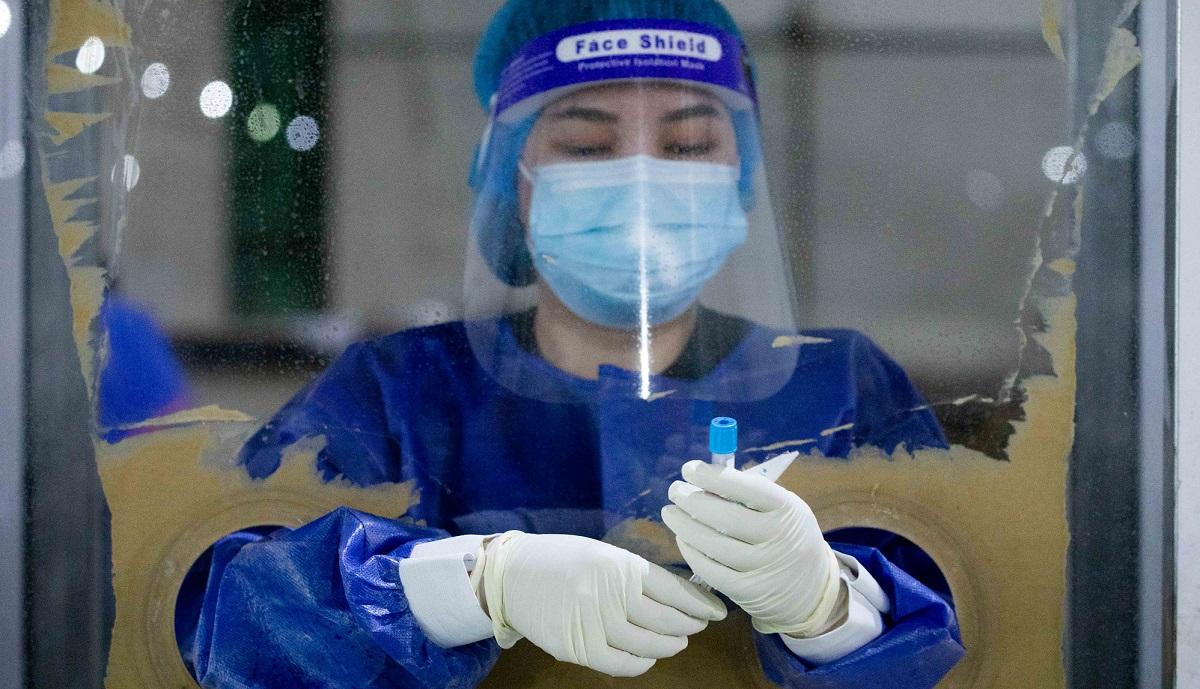Gov't sets price cap for RT-PCR COVID-19 test

RT-PCR (nasal swab) test for COVID-19 virus should be priced from P3,800 to P5,000 at the maximum, Health Secretary Francisco Duque III announced on Wednesday.
Duque said the price cap, provided under the Joint Administrative Order of the health and trade departments, sets the price cap of RT-PCR test at P3,800 for public facilities and P4,500 to P5,000 for private hospitals and laboratories.
Duque said violations of the price cap will mean suspension of license to operate for first (15 days) and second offenses (30 days) while a third offense would mean revocation of license. A fine of P20,000 and P30,000 respectively will also be imposed on erring laboratories for first and second offenses.
“Ito ang nabuo from market study. Meron itong batayan at hindi binunot lang from thin air,” Duque said.
“Ginawa nating price range kasi maraming variables. This gives laboratories leeway to consider variables,” he added.
Duque, however, said the price cap will not revise the Philippine Health Insurance Corporation (PhilHealth) RT-PCR COVID 19 test package, which ranges from P901 to P3,409.
But the Health Chief assured the public that the price range set by the government does not prevent laboratories and hospitals to lower their price in the event that they are able to secure cheaper supplies needed to conduct RT-PCR test.
“Puwede silang bumaba [pa sa price range] pero hindi sila puwedeng lumampas roon [sa P5,000]. Iyon ang general principle,” Duque said.
RT-PCR or reverse transcription polymerase chain reaction test is considered as the gold standard for testing possible COVID-19 infection.
The price cap for RT-PCR test was set almost eight months since the community transmission of COVID-19 was recorded in the country last March.
Target: 20M Pinoys annually
At a separate press briefing, vaccine czar Secretary Carlito Galvez said the Philippine government is planning to administer COVID-19 vaccines to 20 up to 30 million Filipinos yearly within five years.
“We will do this in a three to five years period kasi po kaya lang natin mapa-vaccinate is more or less 20 to 30 million a year,” Galvez said.
“At the same time, titingnan po natin talaga rin na kung alin po ang safe at effective na vaccine,” he added.
For the best case scenario, Galvez said the mass vaccination will be launched either by the second quarter of 2021 or by the middle of 2021.
Meanwhile, DOH Undersecretary Maria Rosario Vegeire said British firm AstraZeneca’s bid to conduct clinical trials for its COVID-19 vaccine in the Philippines is pushing through in the aftermath of impressive results of its clinical trials in the UK.
“They first submitted documentary requirements to our Vaccine Experts Panel (VEP) last November 16, that time hindi pa kumpleto. Immediately, by November 18, they were able to complete all the documentary requirements so they are now for evaluation of the VEP and Ethics Review Board and other the rest of regulatory process for the clinical trial in the country,” Vergeire said.
After securing approval from VEP and Ethics Board, AstraZeneca would still have to get a green light from the Philippine Food and Drug Administration before it can proceed on its clinical trials here.
Vergeire earlier said it is best that COVID-19 vaccines manufactured abroad conduct clinical trials here since it would show how safe and effective the vaccine is for the Philippine population which is now a least 110 million. — KBK/RSJ, GMA News



